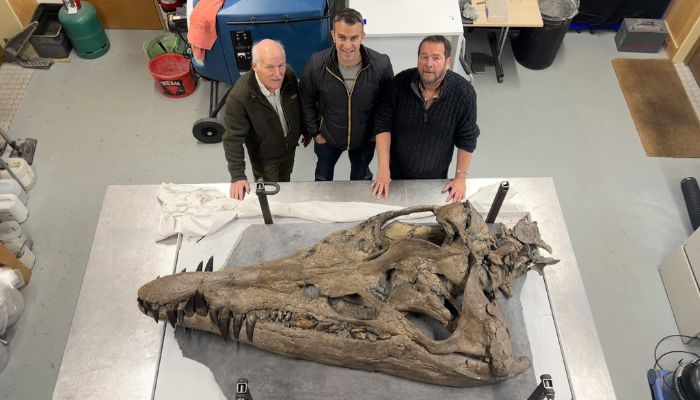
A remarkable discovery emerged from the scenic cliffs of Dorset's famed Jurassic Coast — a colossal pliosaur skull, a relic from approximately 150 million years ago, has been successfully extracted. The 2-meter-long fossil, heralded as one of the most complete specimens ever found, offers an unprecedented window into the behaviour and physiology of this ancient marine reptile.
The creature, an apex predator of its time, wielded a skull longer than most humans, underscoring its enormous size. Notably, its front teeth, sharp as blades, delivered lethal bites, while the ridges on these teeth facilitated efficient flesh tearing, a hallmark of its prowess as a hunter. This pliosaur's skull bears witness to dozens of razor-sharp teeth that once ruthlessly tore through the flesh of its prey, which included ichthyosaurs, as per Guardian reports.
Startling fossil evidence suggests an intriguing predator-prey dynamic among pliosaurs, hinting that they targeted their own kind, adding layers of complexity to their ecological roles.
Describing the rarity and significance of the find, palaeontologist Steve Etches shared with BBC News, "It's one of the best fossils I've ever worked on. What makes it unique is that it is complete. The lower jaw and the upper skull are meshed together, as they would be in life."
The daunting task of extracting this gigantic fossilised skull will feature in an upcoming David Attenborough BBC documentary on New Year's Day, showcasing the painstaking and perilous efforts involved in securing such a monumental relic.
Dr Andre Rowe from Bristol University likened the pliosaur to an underwater T. Rex, emphasising its colossal size and predatory dominance.
















